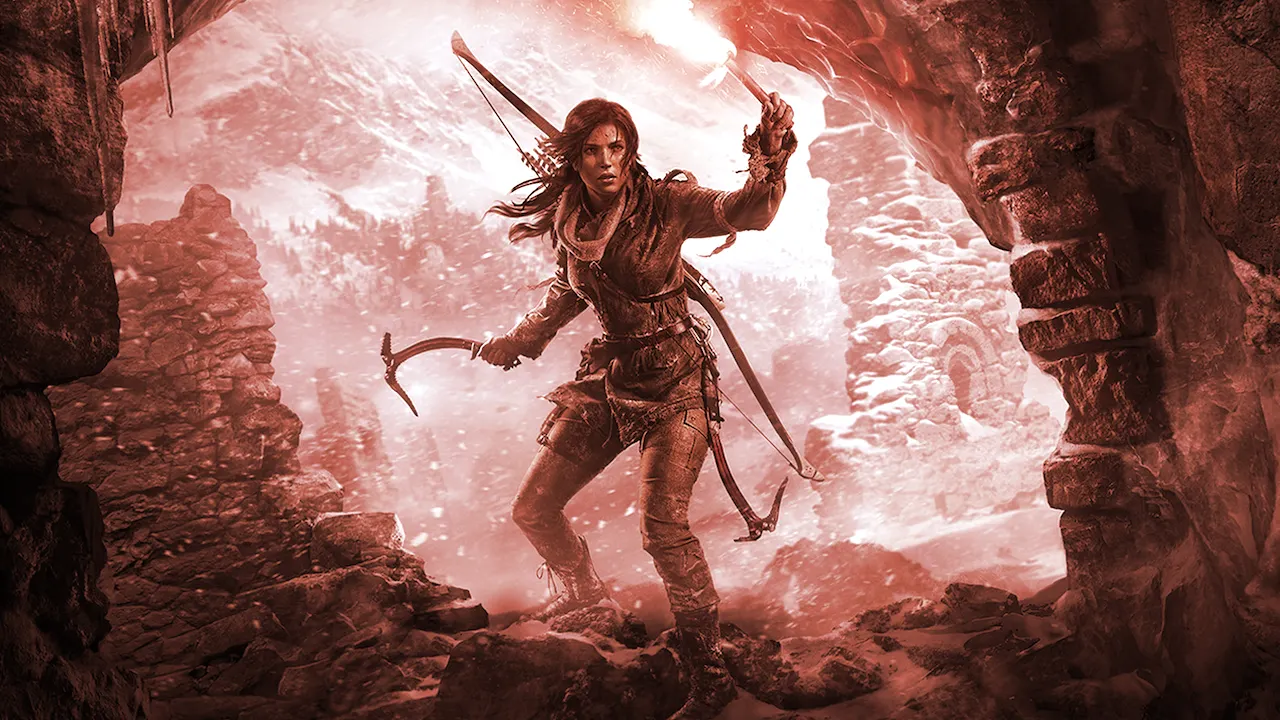In brief
- Square Enix will sell IP and game studios to Embracer Group for $300 million.
- The publisher said that the move will aid its pivot into blockchain-based games.
Square Enix has been one of the loudest voices in support of blockchain and NFT-based games in the gaming industry, but now the publisher is really putting its money where its mouth is. Today, the Japanese firm announced that it will sell off studios and major properties—including Tomb Raider—to help fund new business moves, including in the blockchain space.
Embracer Group has agreed to pay $300 million to Square Enix to acquire properties such as Tomb Raider, Deus Ex, Legacy of Kain, and Thief, as well as game studios Crystal Dynamics, Eidos-Montréal, and Square Enix Montréal. The three studios collectively employ nearly 1,100 people in total.
In its press release, Square Enix pinned the sale to a need to “[adapt] to the changes underway in the global business environment by establishing a more efficient allocation of resources.” It also specifically called out the “launch of new businesses,” with blockchain listed alongside technology such as A.I. and cloud computing.
Square Enix still has its long-running Final Fantasy, Dragon Quest, and Kingdom Hearts role-playing game franchises, along with newer IP like Life is Strange and Just Cause. However, it will apparently slim down its overall game development operations as a result of the sale.
Embracer Group will also take over the rights to more than 50 past games published by Square Enix. The Swedish publisher was founded in 2011 and previously went by the names Nordic Games and THQ Nordic. It has risen to prominence through a series of previous acquisitions, including Borderlands developer Gearbox Entertainment as well as Dark Horse Comics.
Square Enix began making moves in the crypto gaming space in 2020, initially leading a $2 million funding round for Ethereum-based metaverse game, The Sandbox. Just this past March, Square Enix announced plans to bring its classic Dungeon Siege property into The Sandbox’s game world, which lets players own virtual land plots sold via NFTs.
However, Square Enix has its own vision outside of The Sandbox. Last November, the publisher signaled plans to launch its own NFT collectibles and NFT-powered games, following a successful test run selling NFT trading cards based on the video game and anime franchise Shi-San-Sei Million Arthur in Japan.
In January, Square Enix president Yosuke Matsuda again highlighted the firm’s increasing push into crypto. He wrote in a letter that there’s a contrast between people who “play to have fun” and “play to contribute”—suggesting that the latter is possible in blockchain games, wherein users own NFT assets and may earn token rewards based on their play.
“Blockchain games, which have emerged from their infancy and are at this very moment entering a growth phase, are built upon the premise of a token economy and therefore hold the potential to enable self-sustaining game growth,” he wrote.
An NFT is a blockchain-based deed of ownership to a digital item, and can represent things like artwork and collectibles—or video game avatars, creatures, weapons, and apparel. The wider NFT market swelled to $25 billion in 2021, and gaming has driven much of that growth, with the Ethereum-based game Axie Infinity itself topping $4 billion in NFT trading volume to date.
Square Enix isn’t alone in embracing NFTs for games—publisher Ubisoft, in particular, is deeply invested in the space and has launched in-game NFT items via the Tezos blockchain. However, many gamers have vocally pushed back against the tech, citing the environmental impact of some blockchain networks, as well as scams and perceived greed by game publishers.





